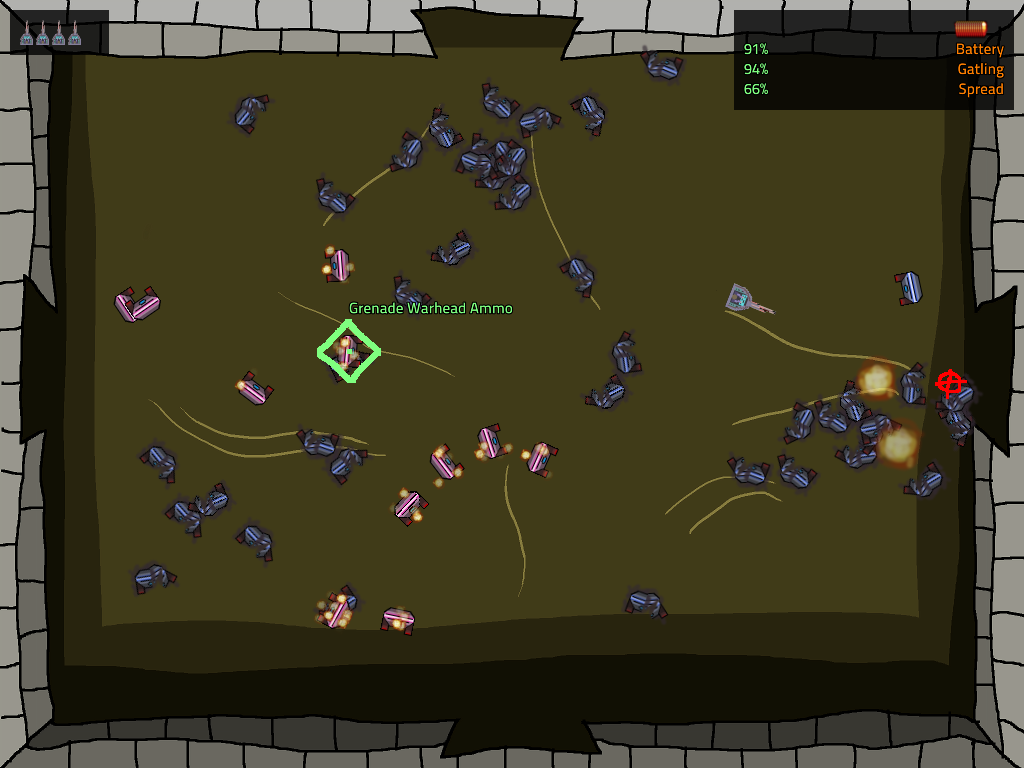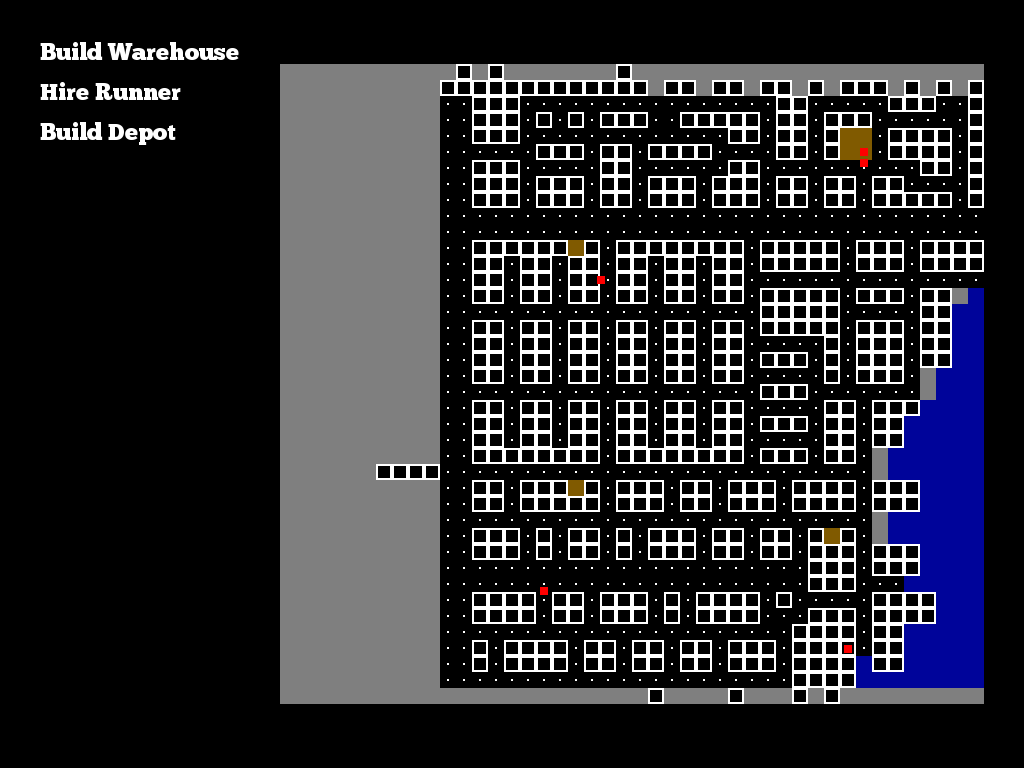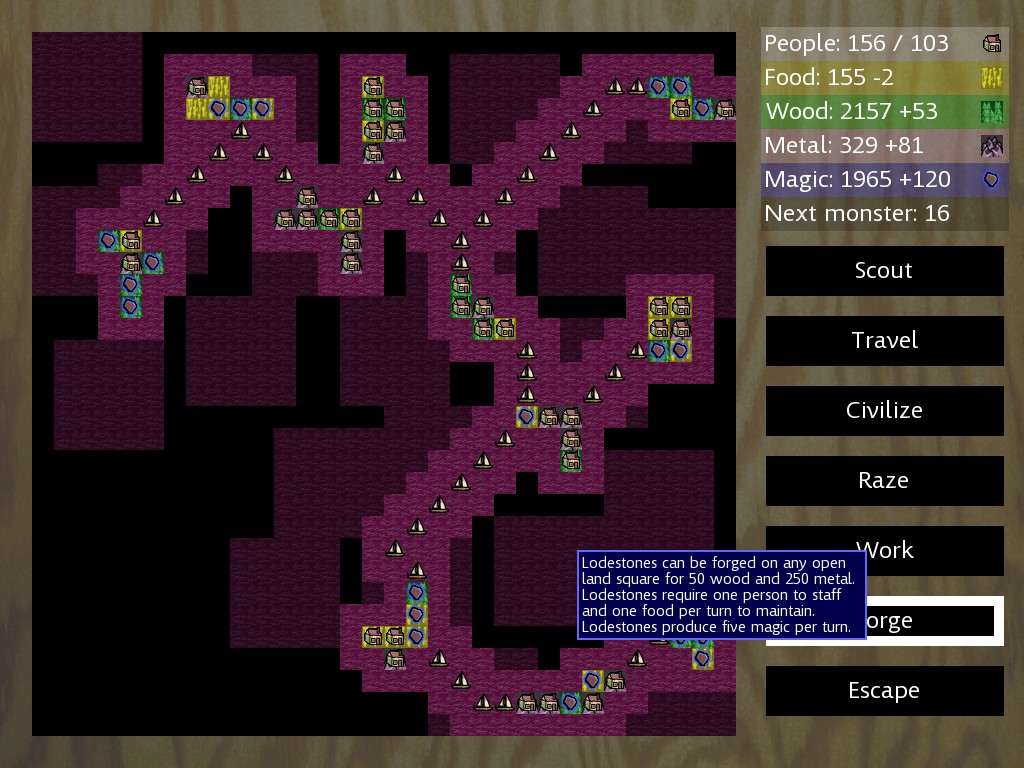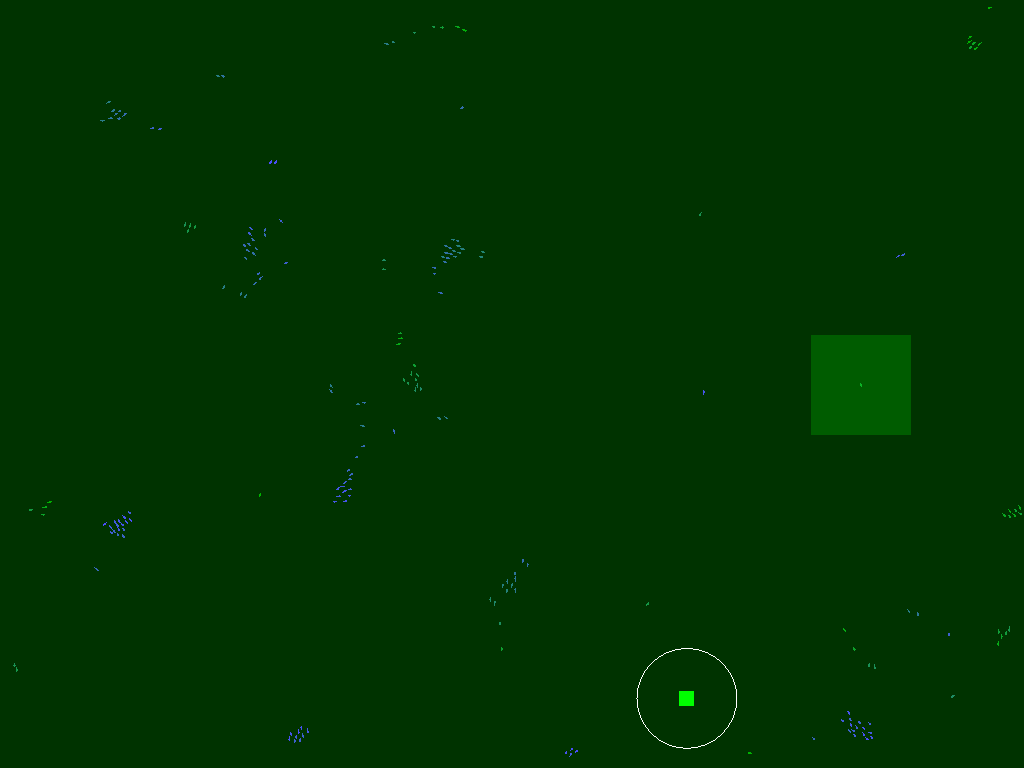Chassis Commander Postmortem
2010, September 14th 1:03 PMSo, Chassis Commander. The result of Ludum Dare 18. For those who aren't familiar, Ludum Dare is a 48-hour game design contest. You get a theme the instant the timer starts ticking – this theme was "Enemies As Weapons" – and you get to make the best thing you can. Chassis Commander came out as a reasonably solid #37 out of 172 overall, which I think is a rather fair assessment.
And I find myself in a somewhat difficult position. Chassis Commander was fun, but it wasn't really notable. It was kind of average. Now, I'll admit that being able to churn out an average game in 48 hours is pretty goddamn awesome, but it makes it rather difficult to write a reasonable postmortem, since it's tough to say things that are . . . you know . . . interesting.
So here we go anyway.
What Worked: The basic gameplay came down to pretty much what I'd intended. Shoot things a lot, scoop guys up as you go, try to master the new crazy gun you just picked up, repeat. The idea I had was solid and turned out well.
There was a lot of tweaking as I went – you may or may not have noticed the gigantic words that flash up in the center of the screen, for example. Those turned out to be 100% necessary because without them I didn't notice when I was running low on ammo or whatever. Same with the color-coded flashing crosshairs. It's all well and good to say "the game was mediocre", but without some of those extremely critical tweaks the game would have been just plain bad, and I'm glad I noticed and fixed them.
One thing that's consistently amused me is how people tell me they've just been right-clicking on the big monsters to suck them up. Like they're breaking the game somehow. No, that's a strategy! I had intended that to work from the very beginning! Use it! The existence of strategies like this is, I feel, a sign of a not-terrible game. :)
What Didn't Work: There's a few issues that have come to light after release. First, I've had people tell me that the game should weight random pickups towards the item the player needs. Actually, it already does, to something like a tenfold weighting – and it's still not enough. Geesh. So, maybe that should be stronger? Or maybe the item pickup system should work a little differently, so you can build up a small buffer of items and not be so vulnerable to the vagaries of the random-number generator?
I'd intended for the player to be able to intentionally grab specific items to change their gun into something more useful. I've never seen anyone do that. People pretty much right-click on flashing things, or just right-click on monsters. There's not a lot of thought as to gun layout, and I feel like in some ways the game would be better if I got rid of the entire sucking-objects-up mechanic and just handed out guns randomly.
'Course, then it wouldn't conform to the Ludum Dare theme.
I've had some problem with people dying near the end of the level and having their death blast finish the level for them, to the point where I've had a few bug reports that dying makes you go to the next level. I didn't realize how common this would be. Kudos to me for balancing things so that players tend to die at the very end of a level as they're just barely overwhelmed, but I should have realized that would be a bigger problem. The original intention for that mechanic is that I didn't want a player to spawn literally on top of a monster and just die, but obviously the mechanic didn't work properly. I probably should have just blown up monsters around the entry point, or done a classic NES-style "ghost mode" for three seconds or so.
And a small thing, but an important one – it occured to me way too late that I never explained how the ammo types worked. Whoops! I was intending to make the ammo-type change something that had to be done a little intentionally, but at some point that just stopped happening, and I probably should have gotten rid of the ammo-type mechanic entirely.
On a larger level of failure, I'd wanted to have some kind of a "world map" a la Super Smash TV, so you could either beeline for the boss or take a longer route to get more points or coins or McGuffins or whatever. I just didn't have time for this – the final version was released about an hour before LD18 ended. Additionally, I wanted a boss, and I didn't have time for that either. More weapons would've been nice. Again, no time.
The Bottom Line: I made a good game, but there's something missing. I look at games like K0R or Nieuwe Aarde and there's a certain level of style and hook that pulls people in. Chassis Commander doesn't have that, and I'm not entirely sure why. I lost a bit of the design charm for this game and I'm gonna have to figure out what happened and how to fix it.






